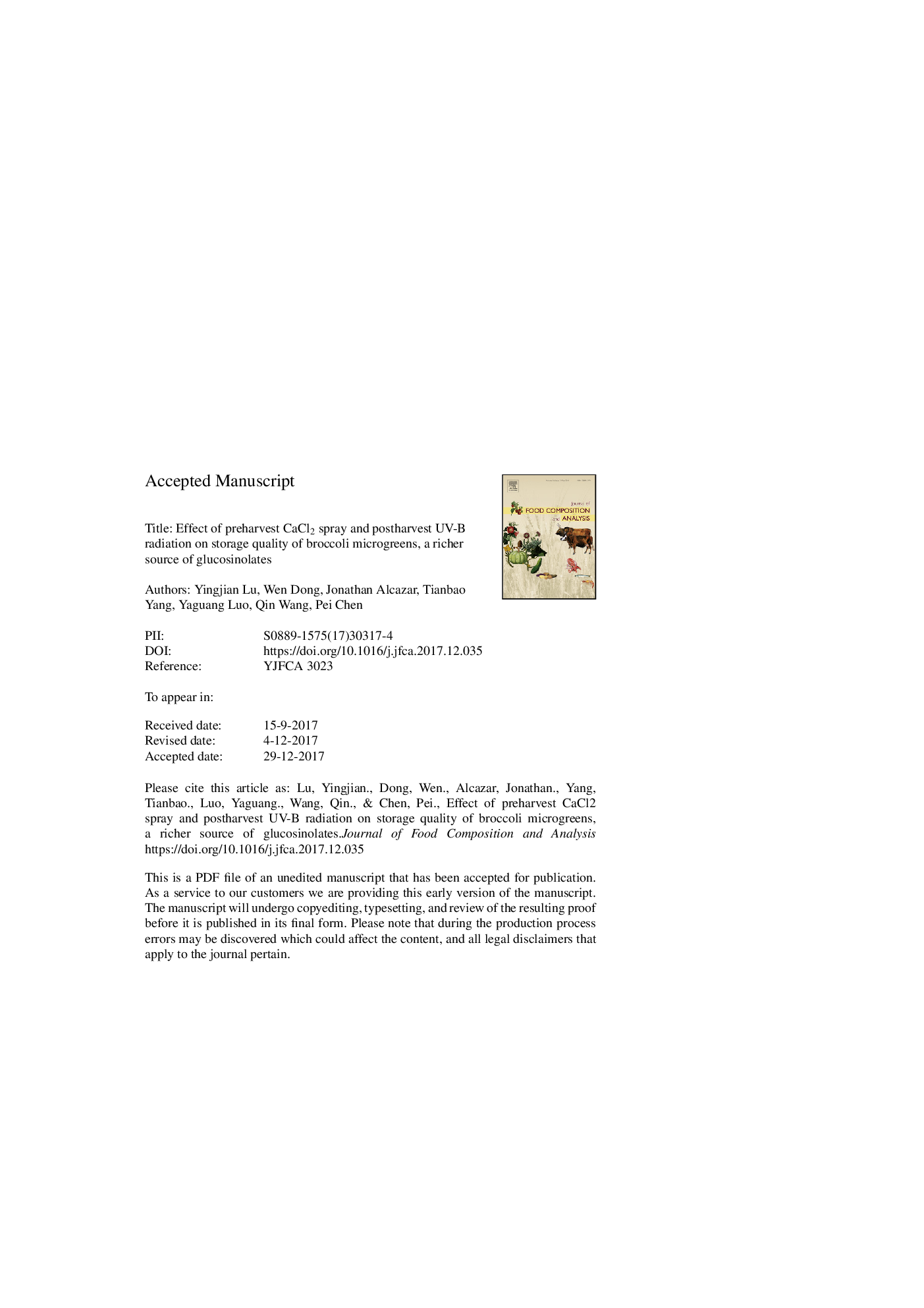| Article ID | Journal | Published Year | Pages | File Type |
|---|---|---|---|---|
| 7619795 | Journal of Food Composition and Analysis | 2018 | 23 Pages |
Abstract
Glucosinolates (GLS), namely glucoraphanin (GLR) and glucoerucin (GLE), are a class of phytonutrients which are beneficial to human health. Broccoli flower buds (florets) have been known to be rich in GLS. The present study indicated that the florets, mature leaves and microgreen of broccoli varied in their GLR, GLE and total aliphatic GLS contents. GLE is the unique glucosinolate in broccoli microgreens while GLR is primarily condensed in broccoli florets and mature leaves. Microgreens contained four-fold greater total aliphatic GLS content than mature broccoli leaves and florets. In addition, we investigated the effects of preharvest CaCl2 and postharvest UV-B applications on the levels of GLR and GLE. Total aliphatic GLS levels increased significantly after 10â¯mM CaCl2 treatment, while postharvest UV-B radiation further boosted GLS levels in microgreens. Furthermore, preharvest calcium spray showed improved overall visual quality and longer storage life. Hence, CaCl2 application is the major factor to increase GLS levels and postharvest quality. Our results indicated that broccoli microgreens are a better source of GLS intake than florets, and preharvest CaCl2 and postharvest UV have positive influence on maintaining the health-beneficial compounds and extending the shelf life of broccoli microgreens.
Keywords
Related Topics
Physical Sciences and Engineering
Chemistry
Analytical Chemistry
Authors
Yingjian Lu, Wen Dong, Jonathan Alcazar, Tianbao Yang, Yaguang Luo, Qin Wang, Pei Chen,
